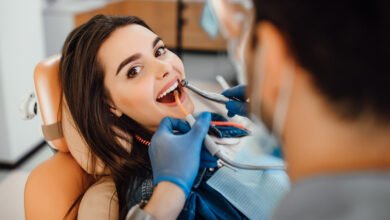How to Get Rid of Herpes Symptoms Naturally

The herpes virus can live dormant inside a person’s immune system for a lifetime, periodically causing blisters that burst and turn into open cold sores or ulcers before healing. When left alone, herpes cold sores usually last about 10–14 days and are uncomfortable for a variety of reasons — causing redness, pain, burning and often embarrassment.
Many people wonder if there is a natural cure for herpes or are looking for ways on how to get rid of herpes for good. While technically the virus that causes herpes (whether on the mouth or genital herpes) is not curable, there are many natural herpes remedies that can put herpes into remission. In fact, many people with herpes don’t experience any symptoms at all, especially long term, once they learn to manage triggers of outbreaks. So while there’s no guide for how to get rid of herpes naturally, there is a method of natural treatment for herpes and how to keep breakouts at bay.
What Is Herpes?
Herpes, whether on the mouth or genitals, is caused by a family of over 70 related viruses. These viral infections cause small, fluid-filled blisters to develop on the skin and mucous membranes. There are actually eight different types of herpes simplex viruses that both children and adults can acquire, but two are by far the most common: HSV-1 and HSV-2.
Herpes Symptoms and Signs
In order to diagnose herpes, a health care provider can swab an area of visibly active herpes infection or, if symptoms aren’t active, a blood test can be given that measures the number of herpes antibodies present in the body. The antibodies don’t indicate herpes itself, but rather show the immune system’s response to the presence of the virus in the body. It’s important to note that sometimes a swab can give false negative results since herpes lesions need to be large enough to yield enough detectable virus and if the outbreak is already healing it also may not be detected in a swab.
The most common herpes symptoms include:
- Developing either a single cold sore or cluster of multiple cold sores (called vesicles) that form on the lips, inside the mouth, or on the genitals, buttocks and upper thighs.
- Symptoms of type 1 herpes are known as herpetic gingivostomatitis, typically affecting the tongue, lips, gingival, buccal mucosa, and the hard and soft palate of the mouth. Symptoms of type 2 herpes in men usually occur on the base of the penis and around the surrounding area and in women on the vulva, vagina and cervix.
- Sores can sometimes be severe, painful and rupture and cause fluid to be secreted out.
- Some herpes canker sores develop a thin, white coating and burn when touched while they healing.
- Around herpes cold sores, it’s common to feel pain, tenderness and other symptoms of a rash, such as redness or signs of swelling.
- Some people are able to tell before an outbreak if one is going to occur because they feel tingling, itchy sensations near the affected area.
- Some people develop other symptoms during herpes outbreaks that are similar to those caused by a cold or the flu. This may include fatigue, irritability, aches or a slight fever.
How to Get Rid of Herpes Naturally
Not every person with a herpes infection actually experiences breakouts of cold sores throughout his or her lifetime or even after initially becoming infected. How often someone has a herpes cold sore outbreak, how severe the outbreaks are, how contagious someone is after infection and how long the sores take to heal all depend on someone’s individual immune response.
1. Boost Nutrient Intake
If you’re going to keep the herpes virus from frequently causing outbreaks, the first step in how to get rid of herpes is to improve immune function by boosting nutrient intake. Include these healing foods in your diet to keep the virus dormant as much as possible:
- Foods Rich in L-lysine: This amino acid may prevent replication of the herpes virus. Foods include legumes, fish, turkey, chicken and vegetables.
- Orange and Red Vegetables: These vegetables include antioxidants, such as carotenoids, bioflavonoids and vitamin C to help with skin/wound healing and raise overall immunity.
- Wild-Caught Fish: Fish provides essential omega-3 fatty acids as some of the best omega-3 foods, which help with inflammation and tissue repair.
- Clean, Lean Protein: The body cannot heal without enough protein. Try to get at least four to five ounces of quality protein per meal. Some of the best protein foods include those that are organic, lean and naturally raised, such as wild-caught fish, pasture-raised poultry and grass-fed beef.
- Zinc: Zinc is needed in many chemical reactions that help rebuild skin and protect the body from viruses or infections. Topical zinc formulas have been found to be effective not only for cold sore treatment, but also for prolonging remissions in herpes. To increase your intake of high-zinc foods, consume more protein sources, such as organ meats (like liver), grass-fed beef, pumpkin seeds, nuts and vegetables like spinach.
2. Avoid Inflammatory Foods
Certain foods can raise inflammation, weaken immune defenses and make skin irritation even worse. Avoid the following foods as much as possible to limit outbreak severity and duration.
- Added Sugar: Too much sugar suppresses immune function and can make inflammation worse. Added sugar is commonly found in bottled drinks, packaged snacks, and flavored products like yogurt, cereal, granola bars and refined grains.
- Alcohol: High amounts of alcohol (in addition to smoking tobacco products and using other drugs) suppress immune function and can make symptoms like fatigue, aches and skin inflammation worse.
- Packaged, Processed Foods: The majority of processed, packaged foods contain genetically modified ingredients (GMOs), hydrogenated oils and grains that can weaken immune function. These foods tend to cause sensitivities or allergies, worsened inflammation, and essentially provide little more than empty calories.
- Acidic Foods: These foods can irritate herpes cold sores and cause worsened pain or burning. Avoid tomatoes, oranges, vinegar or other citrus fruits when you have an active outbreak to keep acid from touching open sores, but otherwise these are healthy foods to include in your diet often.
- Foods Rich in L-arginine: This amino acid might slightly stimulate replication of the herpes virus. Foods to decrease around the time of outbreaks include those with wheat (which is most refined carbohydrates) and chocolate.
3. Consider Supplements
- Antiviral herbs: These include elderberry, calendula, echinacea, garlic, astragalus and licorice root.
- L-lysine (1,000 milligrams three times daily): Can help treat and prevent outbreaks.
- Lemon balm extract: Apply as a topical cream for healing.
- Vitamin C (1,000 milligrams daily): Vitamin C boosts immune function improving herpes.
- Zinc (30 milligrams twice daily): Zinc benefits include supporting immune function, keeping viruses dormant and rebuilding skin tissue to speed up healing.
- B-complex (50 milligrams daily): B vitamins help your body deal with stress and can prevent outbreaks.
4. Try Essential Oils
Essential oils that can help treat herpes include clove oil, tea tree oil and myrrh oil. Tea tree oil is one of the most common oils used on the skin for its natural antiviral, antibacterial properties. Simply apply these essential oils three times daily to areas where cold sores are present, being careful to use a very small amount (only one to three drops). If you have sensitive skin, try mixing the essential oils with a carrier oil to dilute their strength a bit, including jojoba or coconut oil.




